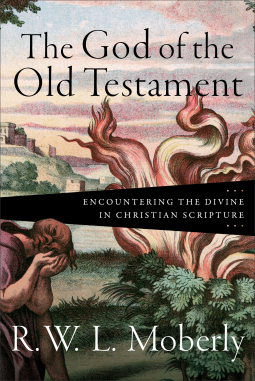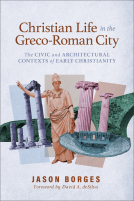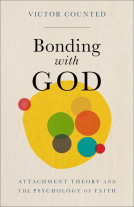
The God of the Old Testament
Encountering the Divine in Christian Scripture
by R. W. L. Moberly
This title was previously available on NetGalley and is now archived.
Send NetGalley books directly to your Kindle or Kindle app
1
To read on a Kindle or Kindle app, please add kindle@netgalley.com as an approved email address to receive files in your Amazon account. Click here for step-by-step instructions.
2
Also find your Kindle email address within your Amazon account, and enter it here.
Pub Date 17 Nov 2020 | Archive Date 3 Jan 2021
Baker Academic & Brazos Press | Baker Academic
Talking about this book? Use #TheGodoftheOldTestament #NetGalley. More hashtag tips!
Description
Advance Praise
“There simply is no better close reader than Walter Moberly. Immensely learned, he has a scholarly range that stretches over centuries and a sensitivity to contemporary pop culture. Above all, he keeps in the foreground the perennial need for Christians to read Scripture both imaginatively and accurately as a guide for moral discernment. In any generation there may be no more than a few scholars of his caliber, and it is largely due to them that Israel’s Scriptures remain at the center of the church’s life.”—Ellen F. Davis, Amos Ragan Kearns Distinguished Professor of Bible and Practical Theology, Duke Divinity School
“These graceful and pellucid essays, informed by their distinguished author’s impressive learning and his gentle and generous Christian commitments, shed precious light on what is perhaps the most important subject in the study of the Scriptures—the nature of the God to whom they testify. I recommend the book highly.”—Jon D. Levenson, Albert A. List Professor of Jewish Studies, Harvard University
“Walter Moberly is one of the most gifted theological interpreters of the Old Testament in our day. In this deeply thoughtful work he offers several examples of what key biblical texts might look like when read with deep sensitivity to their underlying subject matter, the God of Israel. The remarkable attention to the grammar and literary form of the texts he has chosen will allow readers not only to follow the exegetical logic that animates Moberly but also to form their own judgments. Whether or not one agrees with all of the points made therein, the process of following Moberly on his journey will certainly be a pedagogical boon for the reader.”—Gary Anderson, Hesburgh Professor of Catholic Thought, University of Notre Dame
“In The God of the Old Testament, R. W. L. Moberly guides readers through a series of textual journeys toward the biblical God. He chooses passages wisely, analyzes them with sensitivity, and presents the results lucidly. Alert to the ways multiple contexts produce readings that challenge, complement, and enrich each other, he describes the tensions between Scripture’s one God and the privileged human points of access that (according to Scripture) lead to that God. Reading as a Christian, Moberly produces a work that is capacious precisely because it is firmly rooted. Jewish, Christian, and secular readers will profit from his discerning and balanced discussion.”—Benjamin D. Sommer, professor of Bible, The Jewish Theological Seminary; senior fellow, Shalom Hartman Institute
“Decisions, decisions, decisions. In a time when much of the focus is on assumptions (and rightly so), Moberly reminds us that the tasks of biblical interpretation and theology consist of a series of decisions over hermeneutical, existential, and theological matters. Moberly demonstrates each step and turn he makes in reading the Old Testament theologically so that readers can learn how to navigate its texts themselves, and in so doing more fully know the God revealed in its pages. Students, biblical scholars, and theologians will greatly benefit from this work.”—Bo H. Lim, associate professor of Old Testament, Seattle Pacific University
“With an ecumenically sensitive ear, Moberly articulates a vision of God—and thus of humanity—discerned in Israel’s Scriptures that is wholly consistent with Christian theology and practice. As one of the most accomplished exegetical theologians of our day, he demonstrates how to navigate the variety of philological, historical, and literary approaches available, while reading with the benefit of a rule of faith. In six exegetically and hermeneutically rich chapters, The God of the Old Testament unveils a ‘grammar’ of God common to Jews and Christians, which people of faith are called to reveal and instantiate in their own lives, within their respective traditions.”—Claire Mathews McGinnis, Loyola University Maryland
Reviews
“In this cogent work of biblical criticism, [Moberly] analyzes Old Testament scriptures that, through creative hermeneutical interpretations, qualifies them theologically as fully consistent with Christian scripture. . . . Replete with the ideas of thinkers throughout history, such as Erasmus and Pascal, as well as contemporary scholars like Robert Carroll, John Gray, and Thomas Nagel, Moberly explores many diverse, novel interpretations of Old Testament lessons in light of Christian scripture. Any Christian scholar of the Old Testament will find persuasive ideas here.”—Publishers Weekly
Available Editions
| EDITION | Other Format |
| ISBN | 9781540962997 |
| PRICE | $34.99 (USD) |
| PAGES | 304 |
Average rating from 3 members
Featured Reviews
R. W. L. Moberly’s “The God of the Old Testament” is simply an exquisite piece of scholarly literature that is not only academic in nature but perfect for the lay person seeking to understand the God of the Old Testament in a fresh, creative, smart, and challenging way. Excellent read!
 Spencer R, Reviewer
Spencer R, Reviewer
Psalm 100:3
Know that the Lord, he is God!
It is he who made us, and we are his;
R. W. L. Moberly, professor of theology and biblical interpretation at Durham University, writes a “grammar” about God “present in the Scriptures of ancient Israel,” that is, “ground rules for appropriate speech and action in relation to the Lord, the God of Abraham and of Israel.” Moberly provides six chapters that tell us about God’s nature. Moberly doesn’t move in canonical order (Proverbs 8 is the first chapter, and Genesis 4 is the fourth). As Psalm 100:3 states, we are to know that the Lord is God. The following sentence (“It is he who made us, and we are his“) tells us that are created and relational. Moberly uses these six chapters as a type of text case of seeing how one who reads the Old Testament today can come to a point where he or she agrees with the psalmist and proclaims that “It is God who made us, and we are his.” Moberly offers six examples of how Israel’s scriptures can be read as Scripture today. It is a way to read, not the way. Moberly reads the Old Testament as the canonical text as we have it today, rather than looking at a hypothetical story behind the text and how it possibly came to us. And, to Moberly, imagination is important. Imagination gives us another perspective. Many perspectives by which to have conversations over the text to figure out what is going on and what it teaches us about God.
The Wise God: The Depths of Creation in Proverbs 8 (and Genesis 1)
The Mysterious God: The Voice from the Fire in Exodus 3
The Just God: The Nature of Deity in Psalm 82
The Inscrutable God: Divine Differentials and Human Choosing in Genesis 4
The Only God: Surprising Universality and Particularity in 2 Kings 5
The Trustworthy God: Assurance and Warning in Psalm 46, Jeremiah 7, and Micah 3
In chapter 4, Moberly compares the story of Cain and Abel and asks, “Is God unfair?” Everyone wonders what Cain did wrong in Genesis 4. But how often do we ask, Did Cain actually do anything wrong? After giving an example of how the Cain and Abel story may have come from another time but was recontextualized to fit the time before the earth was populated, Moberly moves to the birth of the boys. Since the text says that Eve conceived only once but bore twice, it may be possible (though not necessary) that Cain and Abel were twins. Moberly sees it as “preferable” that we aren’t given an explanation for why God preferred Abel’s sacrifice over Cain’s. God favored Jacob over Esau, why couldn’t he favor Abel over Cain? Moberly writes, “The issue is how to handle life in a world where some are more favored than others and, especially, how to cope with being, in one way or another, the one who is unfavored.” Having just looked at God as a God of justice in Psalm 82 (chapter 3), now we look at how God is impossible to fully understand.
Though Moberly points out what 1 John and the author of Hebrews say about Cain and Abel (and argues that they are basing their thoughts about Cain on the LXX of Genesis 4 which does give a reason for God’s rejection of Cain’s sacrifice), one still has to ask why God wouldn’t accept a sacrifice. While God does show favor to Jacob over Esau, Esau could still have followed the Lord. If Cain was actually trying to obey the Lord, why wouldn’t God accept his sacrifice? If chapter three (Psalm 82) shows us that the nature of our God is to be just, how does this jive with how God treats Cain? But the story doesn’t explain how or why God chooses Abel over Cain, only that he does. The point is to press us to think about “how best to respond in situations of being unfavored.” How will you respond when you are treated unfairly? Will you be a Cain or Esau?
People have different characteristics, abilities, situations, and outcomes. Inequity and inequality is naturally going to take place. Some people are more attractive, smart, musical, athletic, etc. In Psalm 82:3-4 (see also Deut 10:17-19), justice revolves around treating the poor, the orphan, and the widow with care and not exploiting them. God’s gracious purposes, though testing and inscrutable, “are always for good.”
Our wise God created the world in wisdom, and we are to gain wisdom “to become in tune with reality.” We are to live wisely every day according to God’s purposes. Chapter two looks at how God is a mysterious God, declaring his personal name (“Yahweh”) to Moses, “I am who/as I am.” Moberly argues that the idea behind God’s revelation here is that “the more you know, the more you know you don’t know.” There is truth to this. On the one hand, as I understand it, who is the Lord? He reveals himself to Israel through his saving acts. At the same time, who would have guessed what he would do? God declares in Isaiah that his ways and thoughts are higher than ours. There will never be a pints where anybody feels like they really have a handle on God. Being infinite, there is always more and more to learn. (I’ll let the Hebrew linguists argue over Moberly’s exegesis of the Hebrew here.)
There is much more that could be said. Moberly is not offering a way of reading the text as the way of reading the text. Doing so can close down interpretation, as if to say, “This is the only way you can read or interpret this text. To do otherwise is to misunderstand it.” Rather, he provides an imaginative way of interpreting the text which opens it up to see how rich it is with implications toward theology and life.
One personal downside of the book is that I found Moberly hard to understand. He is both precise and mysterious with his words. He writes precisely what he means, and yet I still don’t always really know what he’s intending to say. That certainly won’t be everyone’s problem, but if you don’t read much on Old Testament theology, this will be difficult to move through.
Recommended?
This is a fine book on understanding aspects of God’s character. Those who have a strong academic bent (and can use their imagination) may enjoy this. You may not disagree with all Moberly writes (I didn’t), but he will certainly make you think and wrestle with the text. He will help you look at the text in a different way, and you will be sharper for it.
Readers who liked this book also liked:
Dr. Kelly Flanagan
Christian, Health, Mind & Body, Parenting, Families, Relationships







